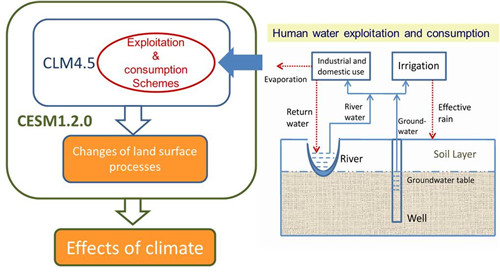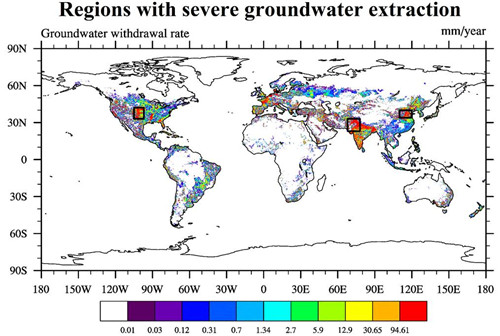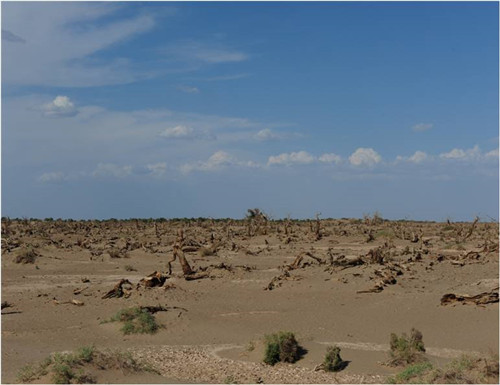
Anthropogenic groundwater exploitation changes soil moisture and land-atmosphere water and energy fluxes, and essentially affects the ecohydrological processes and the climate system. In over-exploited regions, the terrestrial water storage has been rapidly depleted, causing unsustainability of water use and inducing climate change.
Recently, scientists from CAS Institute of Atmospheric Physics, Prof. XIE Zhenghui and Dr. ZENG Yujin incorporated a scheme of anthropogenic groundwater exploitation into the Community Earth System Model version 1.2, and conducted a series of simulations over global scale to investigate the impacts of anthropogenic groundwater exploitation on the hydrological processes and climate system around the world. The framework of the coupled model is shown in Fig. 1.

Fig. 1 Framework of the coupled model (Image by IAP)
"Quantifying the hydrologic and climatic responses to anthropogenic groundwater extraction not only advances our understanding on the hydrological cycle with human intervention, but also benefits effective human water management for sustainable water use,” said Prof. XIE.
They found that groundwater exploitation caused drying in deep soil layers but wetting in upper layers. “A rapidly declining water table is found in areas with the most severe groundwater extraction," Prof. XIE observed, "The areas include the central United States, the north China Plains and the north India and Pakistan.”
The atmosphere also responded to groundwater extraction, with cooling at the 850 hPa level over the north India and Pakistan and a large area in the north China and central Russia. Increased precipitation occurred in the north China Plains due to increased evapotranspiration from groundwater irrigation. Decreased precipitation occurred in north India because the Indian monsoon and its transport of water vapor were weaker as a result of cooling induced by groundwater use. Local terrestrial water storage was shown to be unsustainable at the current high groundwater extraction rate.
"A balance between reduced water withdrawal and rapid economic development must be achieved in order to maintain a sustainable water use, especially in regions where groundwater is being over-exploited," XIE suggested.
This research finding has been published in Journal of Climate.

Fig. 2 Central US, north China Plains and north India and Pakistan are suffering from severe groundwater extraction (Image by IAP)

Fig. 3 Groundwater over-exploitation reduces water level and causes drought in Heihe River valley, northeast China. (Photo by IAP)

86-10-68597521 (day)
86-10-68597289 (night)

52 Sanlihe Rd., Xicheng District,
Beijing, China (100864)

